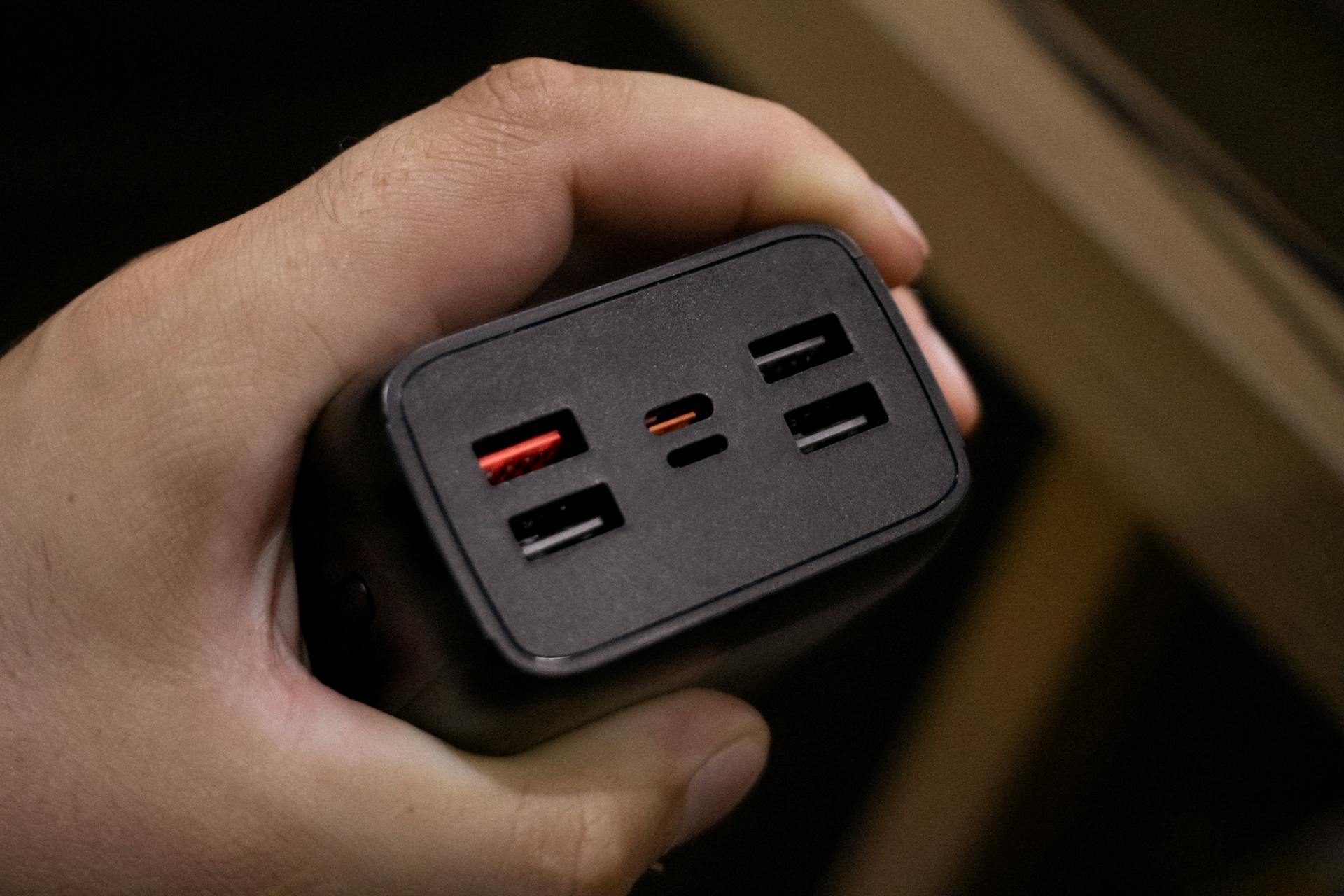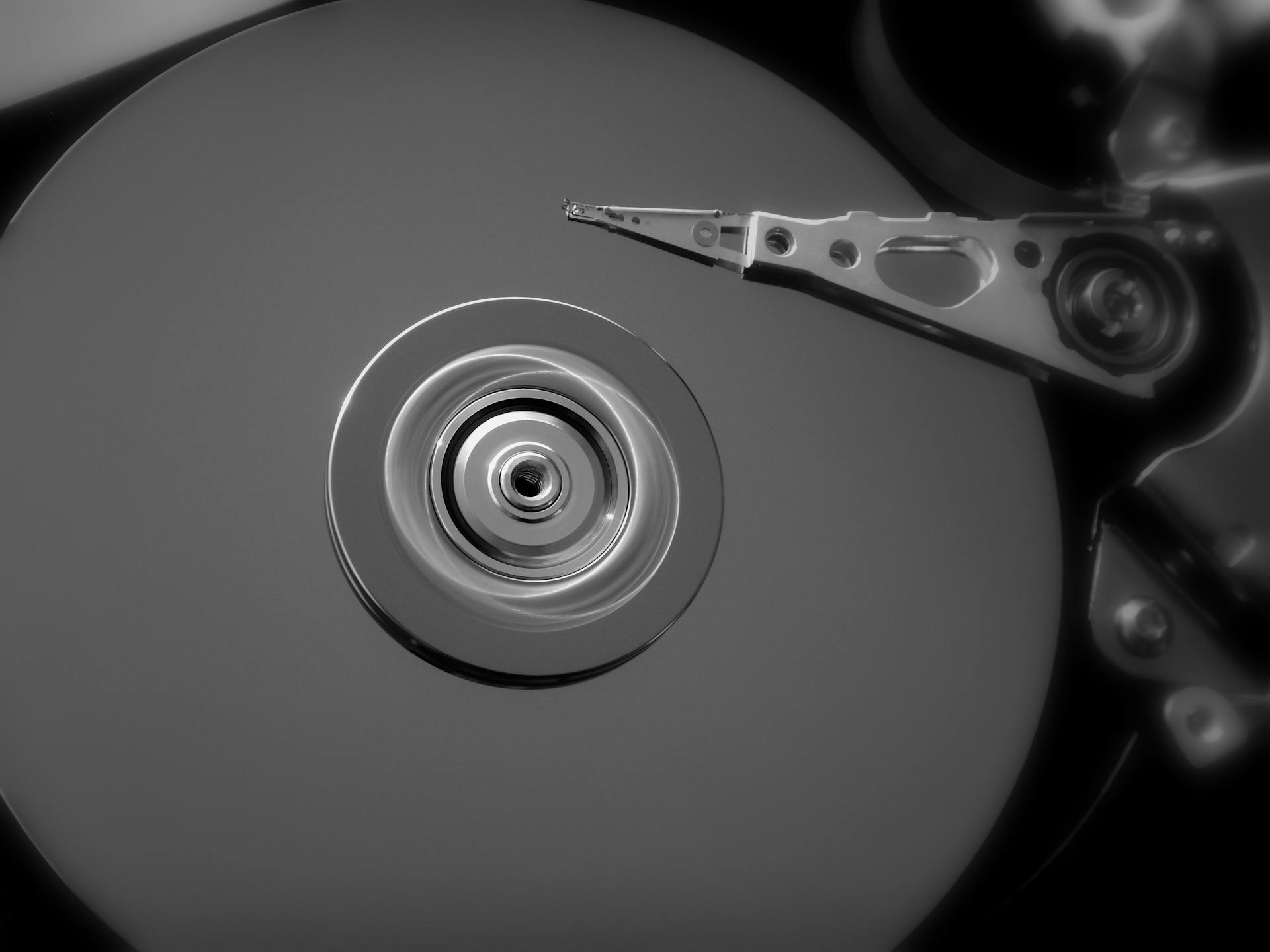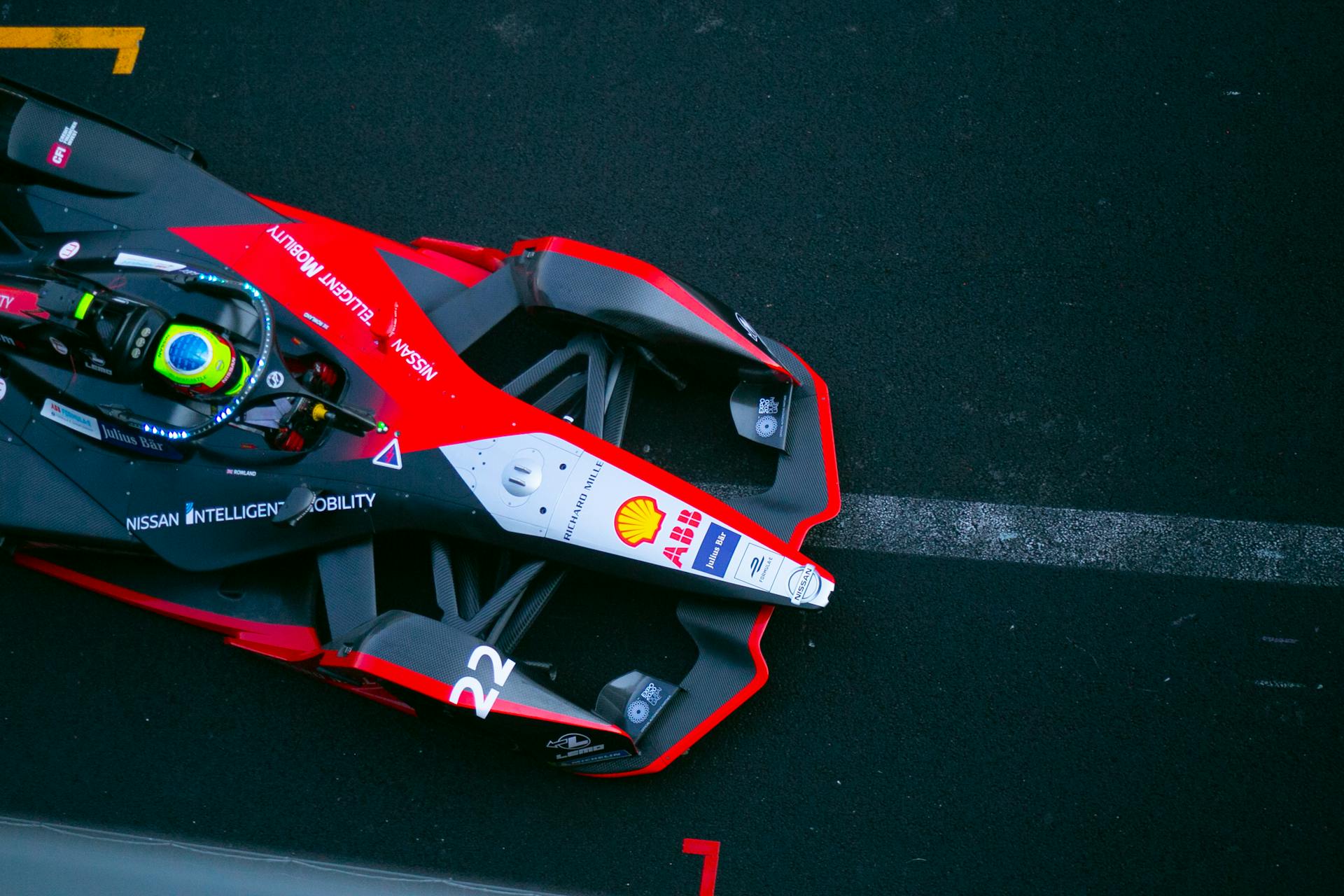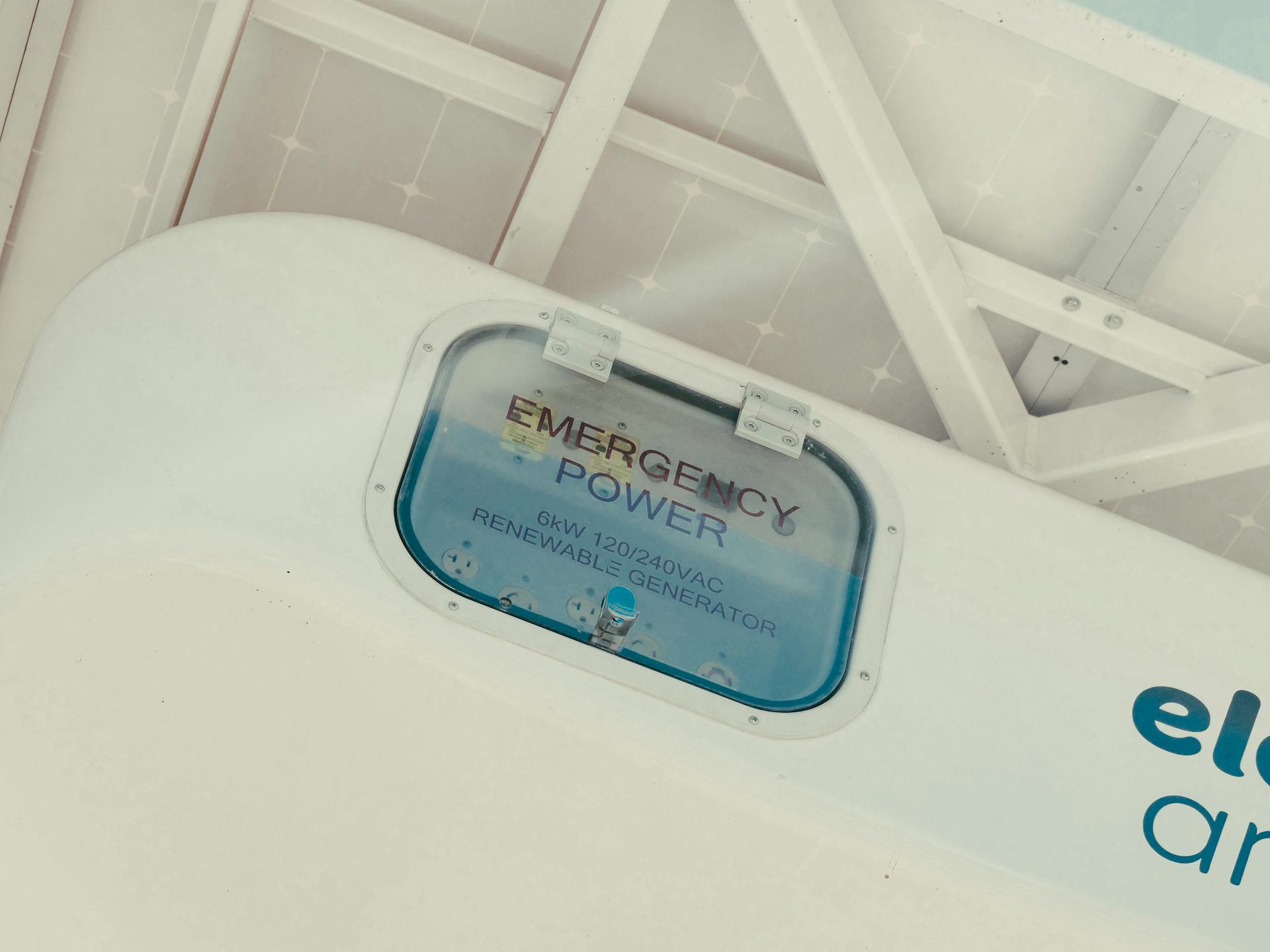
Car inverters and generators are two popular options for powering devices on the go, but they have some key differences. A car inverter is a compact device that converts DC power from your car's battery to AC power, making it safe to use with most appliances.
Car inverters are usually smaller and lighter than generators, making them ideal for camping or tailgating. They're also quieter and produce less emissions.
Generators, on the other hand, are more powerful and can handle heavier loads, but they're often bulkier and heavier.
Design and Portability
Inverter generators are generally more compact and portable, weighing between 30 and 50 pounds, making them easier to move around a work site or camping area.
Conventional generators, on the other hand, can be quite heavy, weighing up to four times more than an inverter, which can be a real challenge when trying to transport them.
Power inverters are designed to be highly portable, with their compact and lightweight nature making them perfect for camping trips or RVs.
Generators, especially the larger models, can be bulky and heavy, but there are portable generator variants available that can make transport a bit easier.
Here's a comparison of the portability of power inverters and generators:
Overall, if you need a reliable power source that's easy to move around, an inverter generator or power inverter might be the way to go.
Functionality
Car inverters and generators are both great options for powering your devices on the go, but they work in different ways.
A car inverter converts DC power from your car's battery into AC power, which is what most electronic devices use. This process is done by a power inverter, which is a compact and portable device.
Car inverters are well-suited for powering small electronic devices like laptops and smartphones. They're also a great option for camping or tailgating, as they're quiet and don't produce any emissions.
In contrast, a generator produces raw AC power that may fluctuate and damage electronics. However, pairing a generator with a generator inverter can regulate this output by converting it to DC and then back to AC.
This setup allows you to enjoy stable power without needing to purchase a full inverter generator. It's also a great option for those who already own a conventional generator but need more stable power for sensitive electronics.
A key advantage of inverter generators is that they don't need to run at full speed all the time to produce AC power. Instead, the engine speed auto-adjusts to the power drawn by the connected load, resulting in less fuel consumption.
Consider reading: Do I Need an Inverter Generator
Performance and Efficiency
Conventional generators are larger and heavier due to their higher fuel capacity, allowing for longer run times without refueling. They can operate for extended periods, but at the cost of being less fuel-efficient.
Inverters, on the other hand, are small and compact, but have a lesser fuel capacity, resulting in shorter run times. You'll need to fill them up more frequently.
Inverters can adjust their engine speed to make better use of fuel, producing up to 40% more efficiency than standard generators.
Consider reading: How Big of Generator to Run Rv Ac
Noise Level
Noise levels can be a significant concern when choosing between inverters and generators. Inverters produce an average of 50 to 60 decibels, making them much quieter than generators.
Generators, on the other hand, can be quite loud, especially the larger variants. They produce an average of 65 to 75 decibels, which can be a drawback in residential areas and for recreational purposes.
The noise level of inverters is a major advantage, making them suitable for deployment in tranquil environments. This is due to their noiseless operation, which emits minimal sound.
A key difference between inverters and generators is their engine speed. Inverters change engine speed based on power demand, resulting in quieter operation at lower levels. In contrast, traditional generators run at a constant speed, producing noise at all times.
Here's a comparison of the noise levels of inverters and generators:
Fuel Capacity & Efficiency
Fuel capacity and efficiency are two key areas where power inverters and generators differ. Conventional generators have a higher fuel capacity, allowing for longer run times without refueling. However, this comes at the cost of size and weight.
Inverters, on the other hand, are smaller and more fuel-efficient. They can adjust their engine speed to match the power load, using up to 40% less fuel than a standard generator. This efficiency makes inverters a great choice for those who need to run their equipment for extended periods.
Generators, as you might expect, rely on traditional fuel sources like gasoline, diesel, or propane. This means you'll need to constantly replenish their fuel supply to keep them running. In contrast, power inverters can be powered by batteries that can be recharged using solar panels or a vehicle's electrical system.
In emergency situations or off-grid living, the ability to run off non-traditional fuel sources can be a game-changer. With a power inverter, you can keep your essential equipment running even when the grid is down or you're far from a fueling station.
A fresh viewpoint: How to Run Ac off Generator
Maintenance and Longevity
Maintenance and Longevity is a crucial aspect to consider when deciding between a car inverter and a generator. Power inverters are generally low-maintenance devices that require only regular checks and sporadic battery replacements to keep them workable.
If you're not too handy, power inverters might be a good choice because they don't require much upkeep. However, generators require more intensive maintenance, including oil changes, periodic servicing, and refilling of fuel.
Despite the extra maintenance, generators often have a longer lifespan when subjected to diligent upkeep, making them a durable investment. This is something to consider if you plan on using your device for an extended period.
Here's a comparison of the maintenance requirements for power inverters and generators:
In the long run, a generator might be a better choice if you're willing to put in the extra effort to maintain it.
Choosing the Right Option
Consider opting for a power inverter when you need a compact, noiseless, and eco-conscious solution for powering small devices.
Power inverters are ideal for remote locations and camping escapades, where you want to operate sensitive electronics without disturbing others.
If you need to operate heavy machinery or require extended power backup during prolonged outages, a generator is the way to go.
Generators are the go-to choice for large-scale power needs, making them perfect for situations where you can't compromise on power.
Ultimately, the decision between a power inverter and a generator comes down to your specific power needs and preferences.
You might enjoy: What Size Inverter Generator Do I Need
Frequently Asked Questions
Can a car inverter power a house?
Car inverters are not suitable for long-term or high-power household use, but can provide a temporary power supply during emergencies or outdoor activities. For safe and reliable household power, consider a more permanent and high-capacity solution.
What should you not plug into an inverter?
Do not plug power tools like drills, saws, or electric lawnmowers into an inverter, as they require high surge currents that inverters cannot handle
Featured Images: pexels.com


